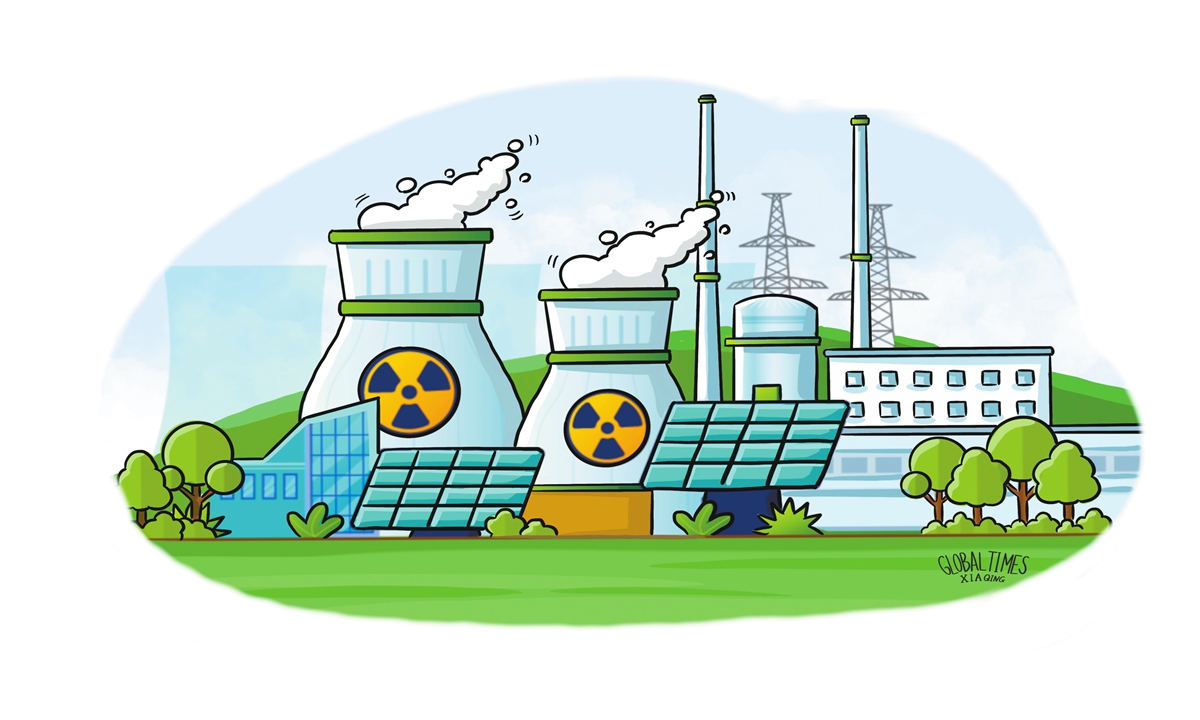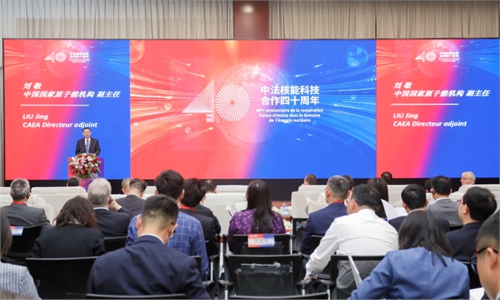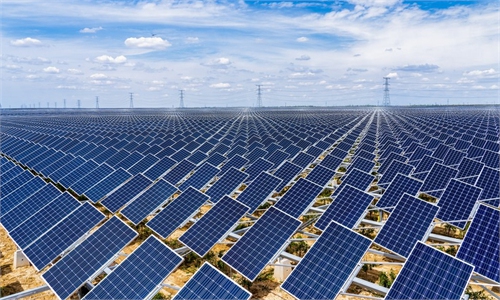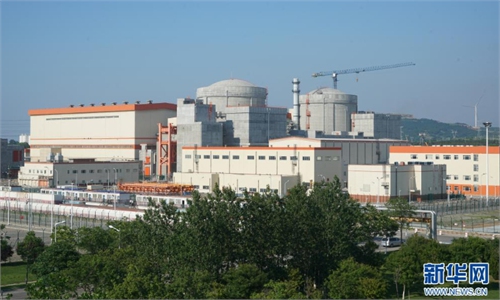
Illustration: Xia Qing/GT
Following approvals for new nuclear power plants in China, the country's development of nuclear energy has attracted fresh attention. Some French media outlets weighed in, focusing attention on why China's nuclear power units have a cost advantage over those made in France.It is not surprising that some in France view China's nuclear power industry from a competitive perspective, calling on Europe to cut costs. However, excessive anxiety over competition cannot accelerate the bloc's green transformation. What is needed today is cooperation, rather than confrontation.
China's nuclear power industry has a cost advantage. China has recently approved five nuclear power projects, with total investment of about 240 billion yuan ($33.3 billion), according to media reports. Some Western countries, in contrast, spend more on nuclear power projects, but gain less.
China's cost advantage can be attributed to multiple factors including a complete industry chain and technological innovation. The country began building its first nuclear plant in the 1980s. After about four decades, China has achieved independent design, construction and operational capability in nuclear power, and it has entered a new era of safe and efficient development.
France is one of the largest producers of nuclear power in the world. The country became a leader in nuclear power generation after the 1973 oil crisis, building more than 50 power plants that produced around two-thirds of the country's electricity, France24 reported. Now, those reactors are aging, but France's economic capability in the nuclear power industry is strong and continues to develop.
China and France have their own advantages in nuclear power. So, it seems collaboration is the best choice for them, and, in reality, cooperation has indeed been the main theme of the nuclear energy development of the two countries.
Nuclear power cooperation serves as an important aspect of China-France economic relations. Cooperation between China and France dates back to the establishment of the Daya Bay Nuclear Power Plant, which went into commercial operation in 1995. EDF, France's state-owned electric utility company and its Chinese partner, China General Nuclear Power Group, kicked off another project nearby - the Ling Ao Nuclear Power Plant, which started commercial operation in 2002, according to the Xinhua News Agency.
The economic structures of China and France are highly complementary, and their nuclear energy cooperation is mutually beneficial, which should naturally lead to a better economic and trade relationship, generating greater development momentum for the world's green transformation through bilateral cooperation.
However, some people in Europe tend to view the development of China's green industry from a competitive perspective, which may have a negative impact on bilateral nuclear energy cooperation. If that happens, it will be a regret for both China and France, as well as for the world's green transformation. It shouldn't be the case.
Enormous potential remains to be tapped in the field of nuclear energy cooperation. China and France, as major world nuclear energy producers, share common interests in promoting nuclear energy to address climate change and the low-carbon transformation.
It's also believed that there is big potential in third-country markets for Chinese and French companies. Nuclear power is cost-competitive with other forms of electricity generation. This has sparked keen interest from some developing countries. If China and France can strengthen nuclear energy cooperation in third countries, it will be beneficial for promoting the global low-carbon transformation.
Nuclear energy cooperation between China and France has a long history and continues to deepen, which has a certain significance as a reference for China-EU clean energy cooperation. If the EU sees China as a partner rather than a competitor, cooperation will benefit both parties and the world.
The author is a reporter with the Global Times. bizopinion@globaltimes.com.cn



